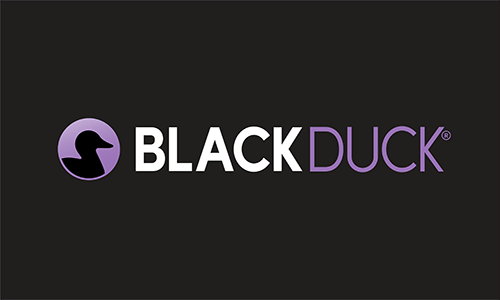In late 2023, Black Duck released the “Global State of DevSecOps” report. The report explored crucial topics in the realm of DevSecOps and outlined practical approaches for implementing effective, resilient, and scalable application security (AppSec) approaches. These approaches can help organizations strengthen their AppSec programs in 2024. Drawing on the report, the webinar, "DevSecOps in the Wild: Examining Global Security Factors in 2023" takes a deep dive into factors critical to supporting a robust DevSecOps program. We discuss some of the findings below.
Understanding the evolution of AppSec
A notable trend is the growing need for, and significance of, integrated and automated AppSec to achieve security at the speed and scale required by businesses today. Organizational pressures such as tooling differences across business units, integration challenges from acquisitions, and deltas that come with organic growth across the enterprise continue to impede the full realization of integrated AppSec. Often, these pressures have evolved over time and can be complicated by legacy or outdated security testing tools and methods that clog modern development pipelines.
Find it and fix it faster
The report highlights the importance of accelerating risk detection and time to resolution, particularly in organizations with frequent releases or continuous integration and continuous deployment (CI/CD) pipelines. According to survey respondents, organizations are inclined toward a three-step approach for realizing AppSec measures that don’t impede DevOps workflows.
- Eliminate friction across the pipeline. Integrating security testing, such as static application security testing (SAST), software composition analysis (SCA), and interactive application security testing (IAST) optimizes risk visibility while minimizing potential obstacles to the development and release process. With integrated analysis at each stage of the SDLC and CI/CD pipelines, organizations are automating security risk assessment and closing feedback loops with development more quickly.
- Establish a culture of DevSecOps. Developer security awareness was emphasized by respondents as a key to successful DevSecOps initiatives, fostered by immediate alerting to detected risks as early as possible for quick resolution. Many have begun cultivating developer security capabilities with secure coding education to accelerate code fixes and to prevent issues as developers write initial code.
- Architect security for scale and flexibility. Respondents noted the importance of integration and automation to their DevSecOps initiatives, as well as the detriment of managing many diverse security testing tools. Balancing security gates with the evolution of DevOps workflows, development projects, supported technologies, and business drivers is essential to avoiding the need to architect a new DevSecOps initiative before the current one has delivered a return.
Respondents also recognized the value of prioritized risk information and remediation guidance across teams, mechanisms that both reduce distraction and clearly define a path to resolution. The report underscores the importance of organizational alignment, showcasing efforts to cultivate security champions and establish cross-functional DevSecOps teams for enhanced visibility into risks at every stage, ensuring secure and streamlined pipelines.
Build security into DevOps
AppSec is a perennial challenge, but Black Duck has strategically aligned its solutions to address security at different stages in DevOps workflows and CI/CD pipelines. In fact, Black Duck has integrated DevSecOps into a comprehensive playbook, with multiple tools and strategies your organization can employ to fortify application security. These include
- Code Sight™ IDE plugin. An organization’s security journey starts and ends at the developers' desktop, with issues being both introduced and resolved by developers writing proprietary code and ingesting third-party components. The Code Sight IDE plugin serves as a security “spellchecker,” providing developers with risk information relevant to their projects during the coding phase and empowering them to address vulnerabilities early in the development process. Security teams can also extend their support to developers with recommended fixes, cybersecurity risk insight, secure coding education, and team-wide issue visibility so no stone goes unturned.
- Polaris Software Integrity Platform®. The Polaris platform is the underpinning for a scalable AppSec program suited for DevSecOps. It provides security teams a centralized location to configure and review results from a variety of security scans (e.g., SAST, SCA), which may run concurrently. This power is augmented by flexible policies, end-to-end SDLC integrations, and automation capabilities to run the right scans at the right times, avoiding impediment to time-sensitive workflows. The Polaris platform is the bedrock for a robust security posture throughout the software development life cycle.
- Seeker® IAST. Gain more insight into security risks without additional configuration burden by turning functional tests into security tests with Seeker. It functions in the sweet spot of “gray box testing,” analyzing application activity and data access or transmission during preproduction, while providing feedback on the security of application configurations. This innovation allows real risks to be validated during runtime, closing the loop between development and security teams quickly, with near zero false positives.
- Developer Security Training, powered by Secure Code Warrior. The secure coding education Black Duck provides with partner Secure Code Warrior gives developers the necessary knowledge and skills to fix detected issues more quickly—and avoid introducing them in future projects. Black Duck Developer Security Training provides risk-relevant learning modules and practical secure coding labs at developers’ fingertips, even making them accessible in the Code Sight IDE plugin and offering issue management integrations (e.g., Jira) to accelerate remediation.
Moving the needle on integrated DevSecOps
Black Duck has a comprehensive playbook to help organizations move the needle on integrated DevSecOps. Drawing insights from the DevSecOps report, we’ve outlined strategies and best practices to establish an effective AppSec program. This includes aligning security practices with development workflows, creating a culture of shared responsibility, and implementing continuous monitoring for evolving threats.
Webinar

Watch the webinar to learn about critical factors to success in your DevSecOps program.
Continue Reading
AI in DevSecOps: A critical crossroads for security and risk management
Oct 08, 2025 | 6 min read
Three steps to ensuring the reliability and security of your C++ projects
Jun 03, 2025 | 3 min read
How to secure AI-generated code with DevSecOps best practices
May 08, 2025 | 3 min read
Security automation and integration can smooth AppSec friction
Jan 23, 2025 | 6 min read
Overcome AST noise to find and fix software vulnerabilities
Jan 06, 2025 | 6 min read








